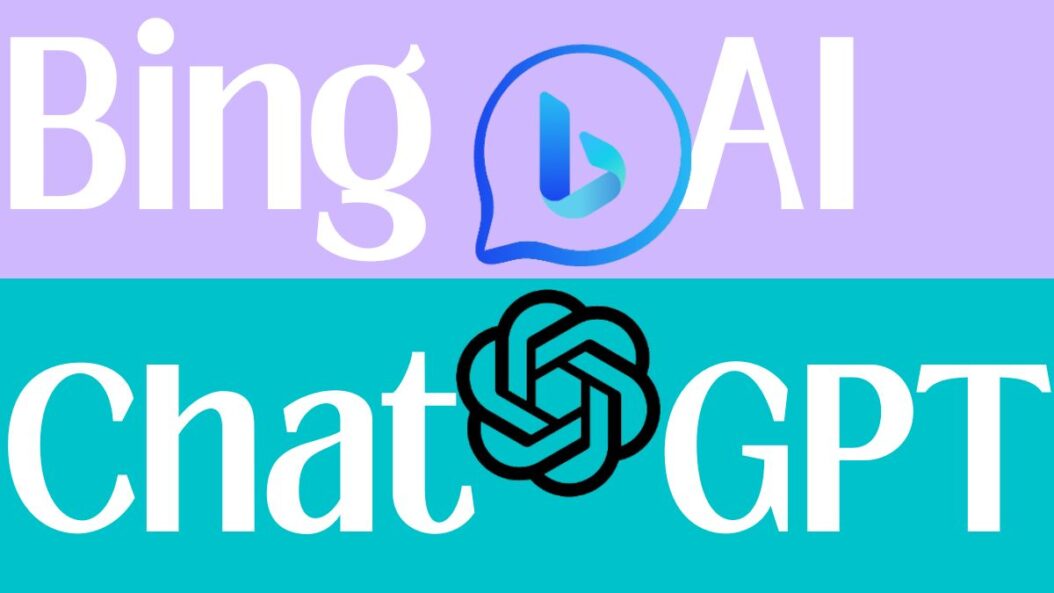Artificial intelligence (AI) chatbots are becoming increasingly popular, with two leading options being Bing AI from Microsoft and ChatGPT from OpenAI. Both provide conversational experiences and can generate human-like text on demand. But which one comes out on top? This article will compare the key features and capabilities to help you decide which AI chatbot is the best fit for your needs.
Origins and Backing
Bing AI is backed by search engine giant Microsoft, while ChatGPT comes from artificial intelligence research company OpenAI. Both have strong financial support and access to massive datasets for training their models. However, Microsoft can leverage over 20 years of search data from Bing to aid development of Bing AI.
ChatGPT was created specifically as a general conversation chatbot trained on dialogue data. In contrast, Bing AI builds on top of an existing search engine, so may have advantages in certain search or information retrieval tasks.

Available Integrations and Access
ChatGPT is currently only accessible via its website or apps. Bing AI, as part of Microsoft’s Bing search engine, is more integrated into Microsoft’s ecosystem including browsers like Edge. Over time, expect both ChatGPT and Bing AI to expand their integrations. For now, Bing AI has the edge for easier access, especially for Microsoft service users.
Conversational Abilities
Both chatbots can maintain multi turn conversations and answer follow up questions. However, early tests indicate ChatGPT may have more human like conversational flow. Bing AI sometimes repeats itself unnecessarily during conversations. It also occasionally makes factually incorrect statements that need correcting. So for true back and forth dialogue, ChatGPT seems more advanced right now. But Microsoft will likely improve Bing AI’s conversational capabilities over time.
Information Accuracy
Since both chatbots train on internet data, they risk generating false or biased information if not carefully designed. OpenAI took specific steps in ChatGPT’s development to improve information accuracy like supervised learning techniques. So far, ChatGPT seems more cautious about making up facts compared to early Bing AI versions. However, Bing AI has the advantage of search engine data to better respond to certain queries with reliable web results. ChatGPT admits when it does not know something rather than guessing, which is safer but less useful sometimes.
Creativity and Task Abilities
A key advantage of ChatGPT versus Bing AI today is its superior creative task performance. ChatGPT can write poems, compose music, code basic programs, and summarize lengthy documents easily. Bing AI is more specialized for search and struggling with creative requests so far. It cannot match ChatGPT’s range of content creation abilities currently. That said, Microsoft suggests they are working on improving Bing AI’s creativity over time. And Bing AI shows promise helping users narrow down travel options or compare product prices by leveraging search data.
Speed and Responsiveness
Thanks to Microsoft’s technical infrastructure, Bing AI offers extremely fast response times even with long conversational exchanges. Outputs appear instantly compared to the slight lag sometimes seen from ChatGPT. If you prioritize minimal waiting between chatbot responses, Bing AI is noticeably snappier. Of course, speed isn’t everything – accuracy and depth of responses matter too. But Bing AI’s speed is impressive.
Underlying Technology
ChatGPT uses a GPT 3.5 natural language model originally developed in 2020. Bing AI leverages a more advanced Claude model from 2022. So from a pure technological standpoint, Bing AI has access to a stronger foundation out of the gate based on more modern AI research. Over time, expect both chatbots to utilize even more advanced natural language models as they are created.
Conclusion
In summary, ChatGPT currently leads in conversational abilities, creative tasks, and information safety. But Bing AI shows strengths in access and integration, speed, and search capability while having lots of headroom to improve. Both AI chatbots are impressive and useful in different ways today. ChatGPT’s well rounded performance makes it a go to for many creative jobs. Bing AI’s tight integration with Microsoft products and services gives it an edge for certain users and workflows. As these technologies continue rapidly evolving, the specifics above may change. But this overview paints a picture of the key differences to consider when deciding whether ChatGPT or Bing AI better fits your needs. Keep an eye out for future advancements from both AI leaders!
FAQs
Can Bing AI or ChatGPT replace human writers?
Not yet. While both chatbots can generate human like text, they lack true comprehension and cannot fully replace human writers today, especially for complex long-form writing.
Is the text output from Bing or ChatGPT plagiarized?
No, both chatbots create custom written text on demand rather than copying existing content. But you should double check any articles for accuracy.
Which chatbot is least likely to share offensive, biased, or incorrect content?
So far, tests indicate ChatGPT has better filters against toxic outputs compared to Bing AI. But both still have flaws to address in future iterations.
What technology improvements are expected for Bing AI and ChatGPT?
Microsoft and OpenAI continue refining the machine learning models that power both chatbots. Over time, expect conversational fluidity, information accuracy, creativity, and more to improve.
How do the systems’ responses to complex questions and commands differ?
Bing AI attempts to directly answer or execute complex requests even if accuracy suffers. ChatGPT acknowledges limitations more readily and avoids speculative responses.
What factors account for their differences right now?
Key differentiators include Bing AI’s more dynamic reinforcement learning training methodology, integration with contemporary web indexed by Bing, and optimization for search rather than just Q&A like ChatGPT.
What concerns exist around these AI systems’ societal impacts?
Concerns include propagating misinformation, exhibiting harmful biases, enabling academic dishonesty, fostering addictive behavior in children, threatening human creatives’ livelihoods, violating privacy, and more.
- How to Use and Access Claude 3: Pricing, Features, and Everything You Need to Know - March 5, 2024
- How AI is Revolutionizing Strategy Analysis? 2024 - March 1, 2024
- How AI is Transforming the Business of Advertising? - March 1, 2024
